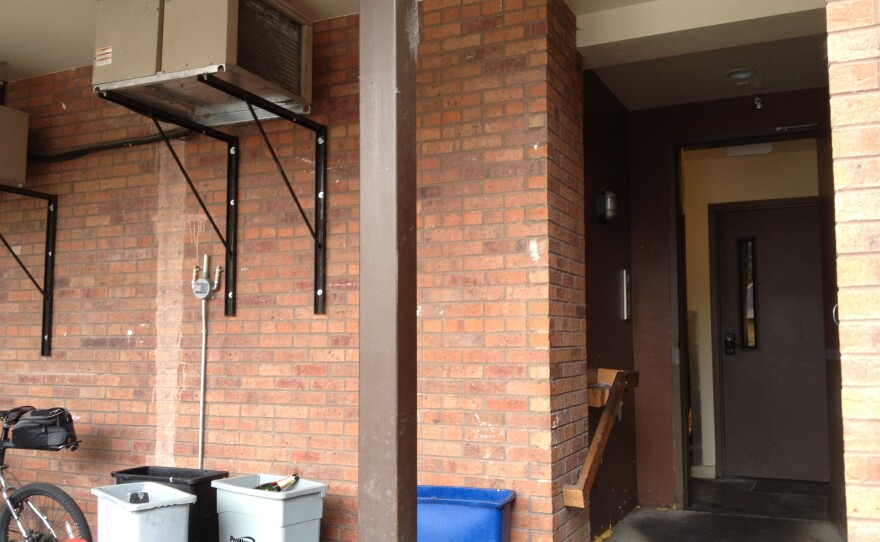There’s a battle happening in downtown Aspen. It has to do with noise complaints filed by the owners of a penthouse against neighboring bars and restaurants. And, it’s headed to the courts. So too is an earlier issue involving access to the penthouse building. The condos' owners, a builder, and the City of Aspen are suing each other. It’s an unusual real estate dispute.
Reporter: This story gets complicated very quickly. So, to keep things simple, think of it this way: Two years ago, a couple purchased two condos in a building on Hopkins Avenue. They say part of the deal was getting exclusive access through what amounts to the front...and nicer...door and elevator. They’ve tried to enforce these permissions this summer-- ruffling feathers and prompting a lawsuit. The problem is, there’s also a restaurant and some affordable housing rental units in the building. The images of those tenants entering through the alleyway door-- out back with the trash cans-- set the stage for a legal dispute.
The city of Aspen sued the couple and related parties, maintaining the other tenants have a right to use the front door and the elevator. The suit claims that if they’re not allowed to use that entrance, they no longer have adequate access to their homes or the restaurant. Aspen Public Radio asked a law professor to consider the case.
Richard Collins: “If this stairway and elevator were the only ways into the building, I’d bet the farm on the city winning. It’d be a piece of cake.”
Reporter: That’s Professor Richard Collins. He teaches at CU Boulder’s law school. After doing some reading on the case in Aspen, he says it’s hard to know who might win, and that much depends upon how the city answers this question about the so-called service entrance.
Collins: “Why is that not an adequate entry for the other apartments, whether they’re affordable or handicapped occupied or what have you?”
Reporter: The Aspen Daily News has reported that has to do with steps in front of the elevator, access from a sidewalk, and other factors… including making sure restaurant patrons have good access as well. Professor Collins says says access lawsuits usually revolve around creating disabled access when an old building gets refurbished. Professor Ron Throupe says there’s another unusual characteristic in the Aspen dispute. He’s a Professor of Real Estate at the University of Denver.
Ron Throupe: “It gets a little weird because you’ve got a mix in there of condos and rental. That’s unusual to have that mix in the same building as such. It’s usually even if you have rental, it’s because a condo owner rented their condo….”
Reporter:...Not an outright combination of affordable housing rentals and condos in the same building. Throupe can’t think of any similar cases in Colorado… though he says there are a lot of lawsuits involving the organizations that handle common places in buildings with condos.
Throupe: “It’s so common to have something with the Homeowners Associations, that actually developers these days are really wary of building condos.”
Reporter: The association at the Aspen location is also named in the lawsuit filed by the City of Aspen this summer. So far all the defendants have responded--some countersuing. What comes next is up to the City of Aspen’s legal department. Until a resolution, residents of Aspen and beyond have been weighing in through letters to the editor in local newspapers.
Note: Aspen Public Radio has invited the two condo owners to tell their side of the story of the dispute. As of Monday September 9th, they had not responded.






